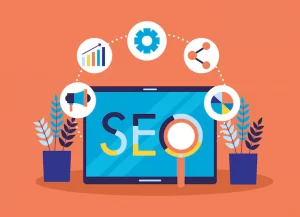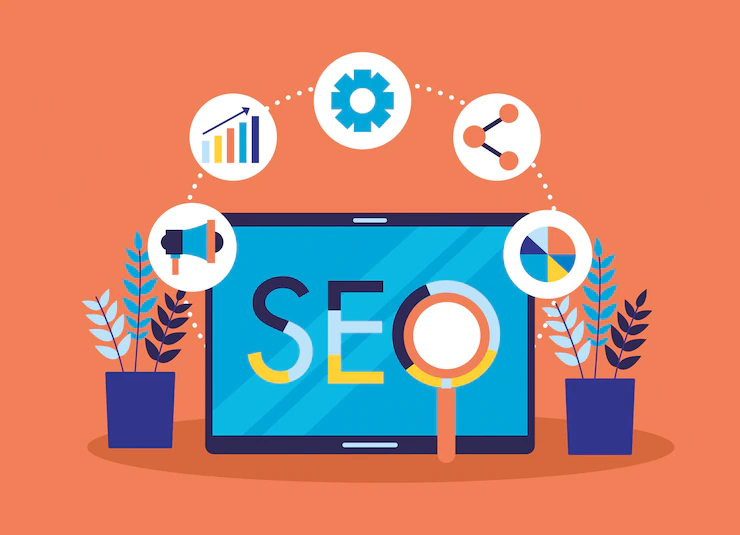Introduction
Personalization in marketing is a great way to get your business to stand out from the rest of the crowd, and it’s surprisingly easy and affordable. What Is Personalization? Sometime in the mid-2000s, online marketers began realizing that simply building websites wasn’t enough: businesses also needed to be present on social networking sites like Facebook and Twitter.
But having a profile on those sites didn’t mean much if customers couldn’t find them: social networks, like search engines, ranked profiles by relevancy – and only then, by name. This meant that to attract attention, companies had to adjust their marketing strategies to match this new reality.
Personalization Is A Key Element Of Marketing, And It Offers A Simple Way To Boost Your Marketing Efforts.
The idea behind personalization is to identify and target customers who are genuinely interested in your products or services. By separating prospects into specific groups, based on factors such as location, demographics, and interests, you can create more targeted campaigns that will resonate with individuals more than generic advertisements. Personalized messages tend to be more engaging and relevant to customers because the characteristics of each group speak directly to their needs.
The introduction of this tactic has been spurred by the development of new technologies like AI and machine learning that make it easy for marketers to analyze large amounts of data from social media sites and other sources. These technologies allow marketers to find patterns in customer behavior that they can use when developing personalized messages for each group.
The Idea Behind Personalization Is To Identify And Target Customers Who Are Genuinely Interested In Your Products Or Services.
If you can isolate this group, you can use their data to develop personalized marketing campaigns. Personalization involves identifying, collecting and using specific types of data to target individual customers.
- Find customers who are likely to be interested in your product or service based on their behavior. For example, if a customer has recently searched for and read articles about companies that offer similar products or services, that person may be interested in your products as well.
- Collect specific types of information from those customers and store it in a database with each customer’s name, email address or another unique identifier attached to it.
- Use the data to create personalized marketing campaigns that are delivered through emails and advertisements on social media platforms like Facebook and Instagram.”
Personalization Offers Companies An Opportunity To Customize Their Messages Based On The Preferences Of The Customer.
The typical customer wants to feel like a brand cares about them. When viewed through this lens, personalization seems to have benefits for both parties: it helps brands build long-term relationships with customers while enabling customers to feel a personal connection with the brand.
For example, imagine that you’re shopping for a new pair of running shoes. You browse your favorite shoes and decide to buy some after seeing an ad that’s tailored specifically for you. This ad is designed with your preferences in mind, so you don’t feel like the company is trying too hard to sell you something or worse, that they’re not selling anything at all (which can be equally alienating).
Personalized Campaigns Allow Marketers To Reach Out To Specific Customers With Targeted Messages.
The most effective personalized marketing campaigns are the ones that make each customer feel like you’re speaking directly to them, and this is where data comes in. If you have good data on your customers’ activities and preferences, then you can create customer profiles. Then, through personalized messages that are relevant to each individual profile, your customers will see that you know about their preferences. Data also allows marketers to segment audiences based on various factors like location, age or gender. Additionally, it allows marketers to locate key people in the company who can act as influencers for certain products or services.
Personalized Marketing Is One Of The Most Effective Forms Of Marketing Because It Helps Brands Build Strong Relationships With Their Target Audience.
Personalization makes your brand memorable and more human, which drives customer attraction and engagement.
You can use personalized marketing in many ways, such as:
- Welcome emails sent to new subscribers;
- Targeted versions of your blog content based on what you know about each lead;
- Relevant gifts and gift cards offered at different stages of the customer journey; etc.
It Is The Process Of Using Data To Deliver Customized Content To Consumers, Which Makes Them Feel Connected To Your Brand And Increase Sales.
Appealing to the consumer’s desire for personalization in marketing is a great way to show that you understand them, which in turn makes them feel important, valued, and like they belong. That’s because they do! They are part of your brand and it just makes sense to make them feel that way.
So whenever possible, customize your content and marketing copy. This can be as simple as addressing the reader by name at the beginning of an email or article, but there are other ways to demonstrate that you know who your audience is and what they care about. For example:
- Use age-appropriate language. Write with a vocabulary that fits your reader’s interests and reading level. Don’t write “at a high school level” if you’re writing for millennials or baby boomers; likewise don’t talk down to kids.
- Target content based on location (and/or language). If you have readers around the world, make sure each region receives relevant information tailored to their needs even if that means presenting content in different languages altogether!
By Tailoring Your Marketing Efforts, You’re Able To Create Messages That Are More Personal And Relevant For Your Customers.
It’s no secret that marketing is an effective way to increase sales and improve customer loyalty, but that doesn’t mean you can rely on the same strategies for every product or service. In fact, a study by Adobe found that people are more likely to abandon purchases if they feel like they’re being sold to instead of being guided by their interests.
Your advertising needs to reflect your customers’ values, interests and attitudes while also appealing to them on an emotional level. This requires a deep understanding of what makes your customers tick so that you can provide the right messages at the right time. Your marketing will be more successful if it’s tailored according to customer feedback, because this sort of personalization helps your customers feel more connected with your brand and opens up new opportunities for them.
Conclusion
The appeal of inbound marketing and its emphasis on creating custom messages for your customers is obvious. But, in order to do so, you need to know who your customers are and what they want. In this way, personalization will not only help you create more effective marketing campaigns but also help you create an online persona that’s unique to your business. Putting the two together will help streamline your marketing efforts and make it easier for you to connect with more customers.
PS: If you need help creating a strong digital marketing, kindly reach out to us today via www.ideaious.com/business or shoot us an email via [email protected] (We have worked with more than 50+ businesses from several industries over the course of 7 years and we believe we have what it takes to get you the results you want).










